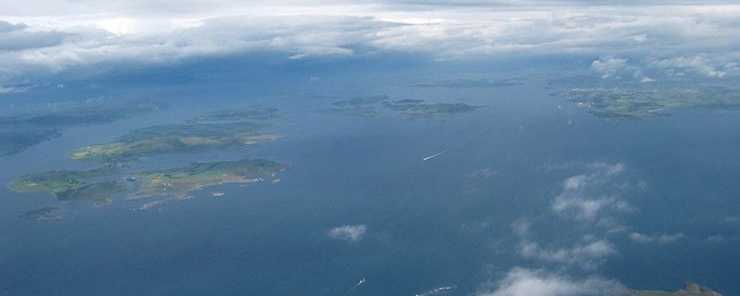Water cremation in the UK: what is it, and how does it work?
Is water cremation available and legal in the UK?
Yes it is legal – but right now there are no crematoria where you can choose this option. However, plans are underway for companies like Resomation and Aquamation to start offering it soon. In 2010, the cremation society of North America changed the definition of cremation to include alkaline hydrolysis, and water cremation is now legal in about 20 US states – so it looks like change is happening all around the world.
At Fenix, we know the kinds of anxieties and uncertainties that the death of a loved one can cause. And we know that, in these moments, peace of mind from sound advice is perhaps the best gift you can receive. That’s why we can be there for you every step of the way – from arranging green funerals from start-to-finish, or just helping you choose sustainable flowers. Feel free to get in touch today to ask us anything.
How does water cremation work?
Alkaline hydrolysis (sometimes known as flameless cremation, aquamation, biocremation, or resomation) uses a mix of 5% potassium hydroxide (commonly known as lye, or caustic soda) and 95% water (at a very high, sterile temperature) to break down the bonds and tissues in a body – that’s the part of the process that’s called ‘hydrolysis’.
The high temperatures and pressure mimic the slow process of natural decomposition, and at the end of the process, you’re left with the pure calcium phosphate of the bones, which is converted into a white dust. This ‘ash’ can be returned to the deceased’s loved ones and scattered, buried, or stored in a memorial.
How long does water cremation take?
There are a number of different options when it comes to choosing water cremation. Some processes take around 2-3 hours, which is comparable to cremation by fire. Others use machines with lower pressure and temperature, and take around 14 hours to complete the process of decomposition and sterilisation. Whatever option you choose, the process is always gentle, safe, and dependable.
Before water cremation becomes available, there are still many green options to choose from when it comes to planning a funeral. From woodland burials to biodegradable caskets, charity donations instead of flowers to trees planted as memorials, we can help you plan the funeral your loved one would have wanted. Find out more about our services.
What happens to the remains after a water cremation?
At the end of the process, any remaining liquid is drained and disposed (just like the basic organic compounds that are burned away in a fire cremation). The remaining brittle bone fragments, or cremated remains, are then treated just like the leftovers from a fire cremation and turned into a white powder.
You can then choose to keep these remains in an urn, bury them, or scatter them. It’s important to keep in mind that, because of the more efficient process, water cremation can produce more remains, so you might need a slightly larger urn.
Any non-protein materials in the body will not dissolve during the process. This includes teeth, dental fillings, artificial implants, and jewellery. These items are collected after the process is complete. They can be returned to the family, or appropriately recycled.
Is water cremation better for the environment?
In short: yes. Alkaline hydrolysis is rightly known as a ‘green cremation’ and it’s a method that’s proving increasingly popular because of this.
- Water cremation has a much smaller carbon footprint, mostly because of the lack of emissions from burning. It also uses about 10% less electricity than a traditional cremation.
- Toxins from mercury and other manmade materials (e.g. in tooth fillings) are not released into the environment.
- Pacemakers, prosthetics, and other medical devices do not need to be surgically removed beforehand, or burned in the process.
- Compared to traditional burial: no embalming chemicals are leached into the ground, protecting groundwater and soil from toxins, and a water cremation does not require a wood or steel casket.
How much will water cremation cost in the UK?
That’s a tricky question, as we won’t know the prices until crematoria start to install the machines. The machines themselves cost around £330k, but the cost to run them is lower, so hopefully it won’t be long until water cremation in the UK is a realistic option.
In the UK, it costs around £1,000 for a direct cremation, and about £4,000 for a cremation with a simple funeral service. Hopefully water cremation services will cost around the same.
Whatever funeral you’re planning, whether for yourself or someone close to you, we are here to guide and support you along every step of the process. From warm, friendly personal advisors to smart digital tools, we’re here for you, always. Feel free to get in touch whenever you want.

